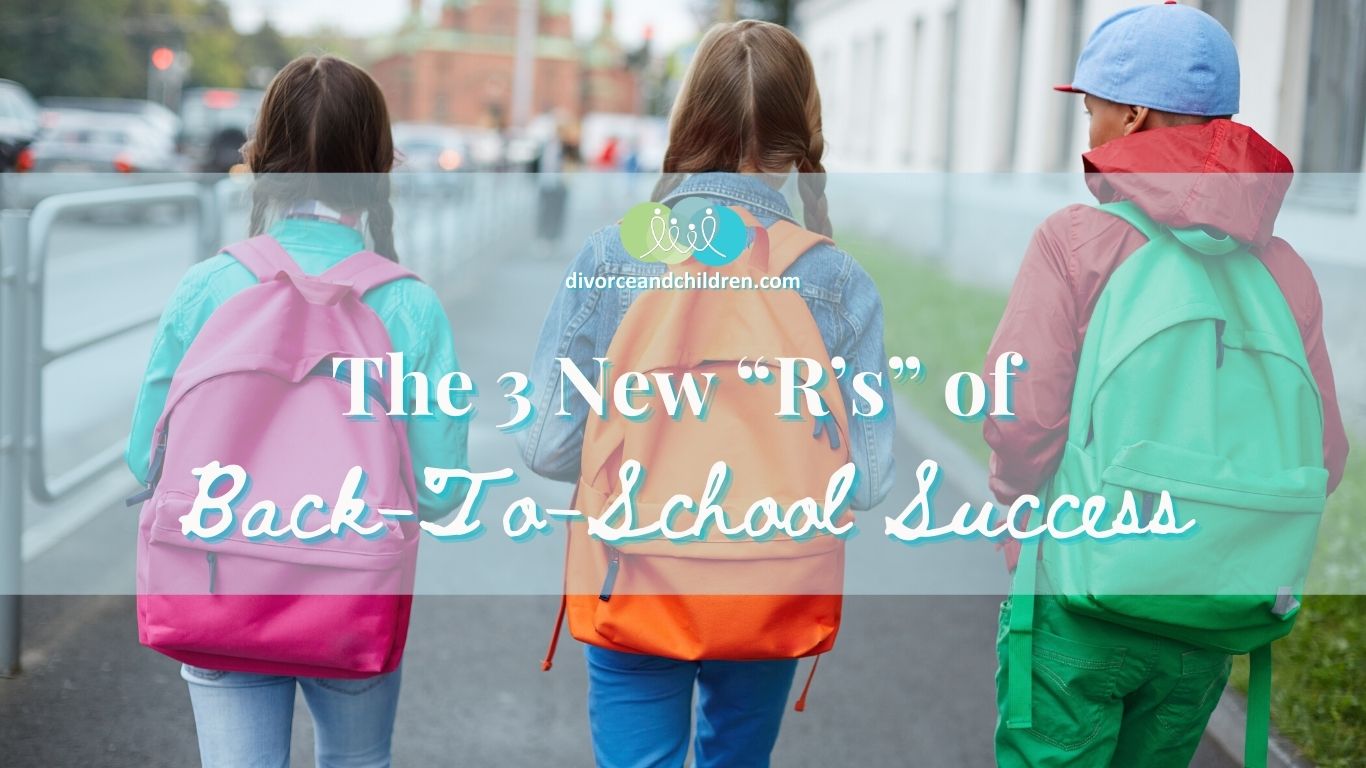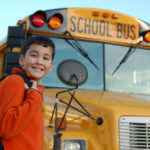The 3 New “R’s” of Back-To-School Success

Let’s face it, some mornings getting kids and all of their stuff out of the house and off to school can feel about as easy as nailing jelly to the wall. Now add to the mix, two different households, different rules and different routines because Mom and Dad no longer live in one home.
Although it may seem like a recipe for disaster, with the right approach family change can provide an opportunity to teach your children responsibility, adaptability and good coping skills.
To get you and your kids get headed in the right direction, here’s a special guest post from one of my favorite parenting experts, Amy McCready, founder of Positive Parenting Solutions and Author of “If I Have to Tell You One More Time…The Revolutionary Program That Gets Your Kids to Listen Without Nagging, Reminding or Yelling.”
Her sage advice will do more than help you smooth out school mornings it will also provide you with a road map for encouraging kids to be responsible and self sufficient.
The 3 New “R’s” of Back-To-School Success
by Amy McCready
Now that school’s back in session, kids are busy learning the fundamentals of “reading, ‘riting and ‘rithmatic.” But when will they learn to grab a raincoat on the way out the door, or to remember their library books, or to tell you they need a ride to soccer practice more than 15 minutes before it starts?
If these common conundrums have you dreading the school year even more than your third-grader dreads spelling tests, it’s time to learn the 3 “R’s” of school-year success: Routine, Responsibility and Ritual.
Routine
Getting the kids out the door every morning seems so simple—but clearly, it’s not. From dragging them out of bed to pushing them out the door, parents face battle after battle. Does it have to be this way?
Not when you set up a When-Then Routine. This type of routine structures your kids’ mornings so that the “yucky stuff” is out of the way before the “good stuff” happens. You can tell your kid, “When you’re dressed, your hair is combed, your bed is made and your backpack is ready, then you are welcome to have breakfast (or TV time, or playtime, etc.). But remember, the kitchen closes at 7:15 so we can get out the door on time.” No nagging required.
Yes, you may face the tough job of sending Max off to school without his usual bowl of cereal, but you can rest assured he’ll survive until lunchtime—and it’ll only happen once.
A When-Then Routine works because it gives your kids the power to manage their morning on their own terms, but within your limits—which makes for a happier, more peaceful home.
Responsibility
A big part of making your When-Then Routine successful is to hold your kids responsible for managing their own routine—make it their job, not yours, to get through it in time. This empowers children to be more independent and develop self-motivation, all while keeping you from being the “bad guy.”
Make sure you reinforce responsibility by implementing a “no rescue” policy. If your kids are constantly forgetting their music for piano lessons, for instance, warn them in advance: “You’re old enough now to take responsibility for your own music, without me reminding you or driving it to you if you forget.” Then, to help them get off on the right foot, you can say, “What ideas do you have to help you remember on your own?” Anything from a special cubby for school items and sports equipment to a checklist by the door might do the trick, and put the power in your child’s hands.
Ritual
Doesn’t it seem that as the school year gets into full swing, schedules get out of control? How’s a family to keep track of all the band rehearsals, math tests and carpools, let alone connect and actually have fun together?
A weekly Family Meeting can help you do all of the above, and also address other important topics your family faces—such as how to keep Lego blocks out of the garbage disposal, and the best way to potty train a new puppy. Once you initiate Family Meetings, they’ll become a welcome ritual for parents and kids, and will add a little structure to a hectic week.
Family Meeting rituals also help your kids learn important skills like communication, cooperation and respect, while the other “R’s,” Routine and Responsibility, will train your kids in managing their own lives, and how to hold themselves accountable for their own success. You’ll find that your kids will take these skills with them to school and beyond, long after the last carpool has been driven.
Want to connect with other parents? Consider joining our community on Instagram, LinkedIn and Facebook.






